Short answer: no, excessive sweating isn’t a classic sign of hypothyroidism. Most people with an under‑active thyroid actually notice less perspiration because their metabolism slows down. If you’re drenched in sweat, it’s more likely you’re dealing with a medication issue, another health condition, or even a hidden dash of hyperthyroidism.
That said, the story isn’t always black and white. Let’s unpack why the thyroid and your sweat glands are connected, why some hypothyroid folks do end up sweating a lot, and what you can do about it.
Thyroid & Sweat
How the thyroid controls heat
The thyroid makes two hormones – T3 (triiodothyronine) and T4 (thyroxine) – that act like the body’s thermostat. They tell every cell how fast to burn fuel, which creates heat. When the thyroid fires on all cylinders, you feel warm; when it slacks off, you feel chilly.
Research from Klarity Health explains that low thyroid hormone levels can make temperature regulation “fuzzy,” meaning some people feel hot even though the gland is under‑active.
The sweat‑gland link
Sweat glands are tiny but mighty. They receive signals from the nervous system, which in turn is influenced by thyroid hormones. A PubMed Central study shows that reduced thyroid hormone can blunt sweat‑gland function, leading to drier skin (study).
What this means for you
If your thyroid is low, you might expect “low sweat.” If you’re sweating a lot, something else is probably at play – medication, another disorder, or a mixed thyroid picture.
Hypo vs Hyper
Typical hypothyroid signs
- Fatigue and low energy
- Cold intolerance
- Dry skin and brittle hair
- Weight gain
- Elevated cholesterol
- Slow heart rate
These are the classic hypothyroidism symptoms listed on Healthline.
Why sweating screams hyperthyroidism
When the thyroid goes into overdrive (hyperthyroidism), metabolism rockets, heat production spikes, and you start to feel molten. Common clues include:
- Heat intolerance
- Rapid heartbeat
- Weight loss despite appetite
- Feeling jittery or anxious
- Increased sweating, often in the palms, underarms, or all over
Mixed signals – the “both” zone
People with autoimmune Hashimoto’s thyroiditis sometimes swing between hypo‑ and hyper‑states. A post on the Thyroid UK forum describes members who feel freezing one moment and overheating the next. It’s a reminder that thyroid disease can be a moving target.
Why Some Hypothyroid Patients Sweat
Medication over‑replacement
Levothyroxine (synthetic T4) is the gold‑standard treatment, but too much of a good thing can backfire. When the dose overshoots, the body essentially enters a mild hyperthyroid state, and sweating pops up alongside palpitations, anxiety, and insomnia.
Red‑flag checklist for excess dose
| Symptom | Possible Cause |
|---|---|
| Sudden night sweats | Levothyroxine dose too high |
| Heart racing at rest | Over‑replacement |
| Feeling unusually warm | Excess thyroid hormone |
| Weight loss | Hormone excess |
Thermoregulatory instability
Even with perfectly balanced labs, some folks report “temperature roller‑coasters.” The thyroid’s role in the hypothalamus (the brain’s thermostat) can get a bit muddled, leading to occasional hot flashes or night sweats. Medical News Today notes that this phenomenon, while not the rule, does happen in a minority of patients.
Co‑existing culprits
- Menopause – Hormone swings can mimic sweat‑related thyroid issues.
- Anxiety or stress – The sympathetic nervous system loves to crank up sweat.
- Medications – Antidepressants, antipyretics, and even certain blood pressure drugs can raise perspiration.
- Primary hyperhidrosis – A separate condition where sweat glands over‑react.
A quick personal story
Last winter, a friend of mine, Sarah, who’s been on levothyroxine for three years, started waking up drenched. She thought it was a “cold‑night‑sweat thing,” but after a dose check, her doctor discovered she’d been taking 150 µg instead of the prescribed 100 µg. A modest dose cut stopped the night sweats in a week. It reminded me how a tiny tweak can make a huge difference.
Diagnosing the Real Cause
Blood work you’ll need
Ask your doctor for a full thyroid panel:
- TSH (thyroid‑stimulating hormone) – the primary screen.
- Free T4 and Free T3 – to see how much hormone is actually circulating.
- Thyroid antibodies (TPO, TG) – especially if autoimmune disease is suspected.
- Levothyroxine serum level (if available) – helpful for dose‑fine‑tuning.
When sweat tests help
In rare cases, a dermatology‑guided sweat‑test can gauge gland activity. It’s rarely needed but can be useful when hyperhidrosis is suspected alongside thyroid disease.
Referral cues
- Persistent excessive sweating despite dose adjustment.
- Fluctuating TSH results (high then low) without clear cause.
- Mixed hypo‑hyper symptoms that confuse both you and your primary care doc.
If any of these ring true, a referral to an endocrinologist can save you weeks of guessing.
Managing Sweat While Living with Hypothyroidism
Medication review first
Never tweak your levothyroxine on your own. Schedule a blood test, discuss timing (most people take it first thing in the morning on an empty stomach), and let your prescriber know about any new symptoms.
Lifestyle tweaks that actually work
- Dress smart – Breathable fabrics like cotton or moisture‑wicking blends keep you dry.
- Cool your environment – A fan or air‑conditioner can be a lifesaver at night.
- Stay hydrated – Water helps regulate body temperature.
- Stress‑busting routines – Yoga, deep‑breathing, or a short walk can calm the nervous system that drives sweat.
Topical and prescription options
If sweat is still a nuisance, talk to your doctor about antiperspirants containing aluminum‑chloride, or prescription meds like glycopyrrolate. They don’t affect thyroid hormones but can calm overactive sweat glands.
Mind your iodine
Your thyroid can’t make T3/T4 without iodine. Excessive sweating, especially during hot workouts, can flush iodine out of the body. The ZRTLab blog notes that athletes in humid climates lose significantly more iodine through sweat.
Include iodine‑rich foods in your diet: sea‑weed, fish, dairy, and iodized salt (but don’t overdo it). If you’re on a low‑salt diet for blood pressure reasons, ask your doctor whether a modest iodine supplement is appropriate.
Bottom Line – When to Seek Help
Excessive sweating is a rare symptom of pure hypothyroidism, but it can surface when medication doses are high, when the thyroid’s temperature‑regulation gets a little wobbly, or when another condition joins the party. The safest path is to track what you’re feeling, get a comprehensive thyroid panel, and have an open conversation with your healthcare provider before making any changes.
Remember, you’re not alone in this sweaty mystery. If you’ve experienced night sweats, unexpected heat, or just want to know whether your thyroid meds need a tweak, drop a comment below. Let’s learn from each other and keep the conversation flowing – because sharing stories is one of the best ways to turn confusion into confidence.



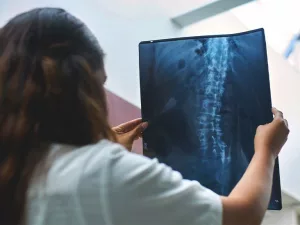





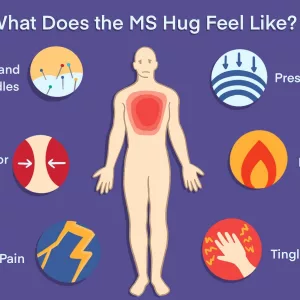
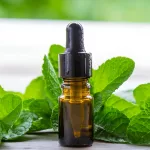


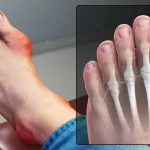
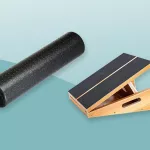



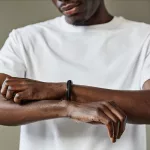






Leave a Reply
You must be logged in to post a comment.